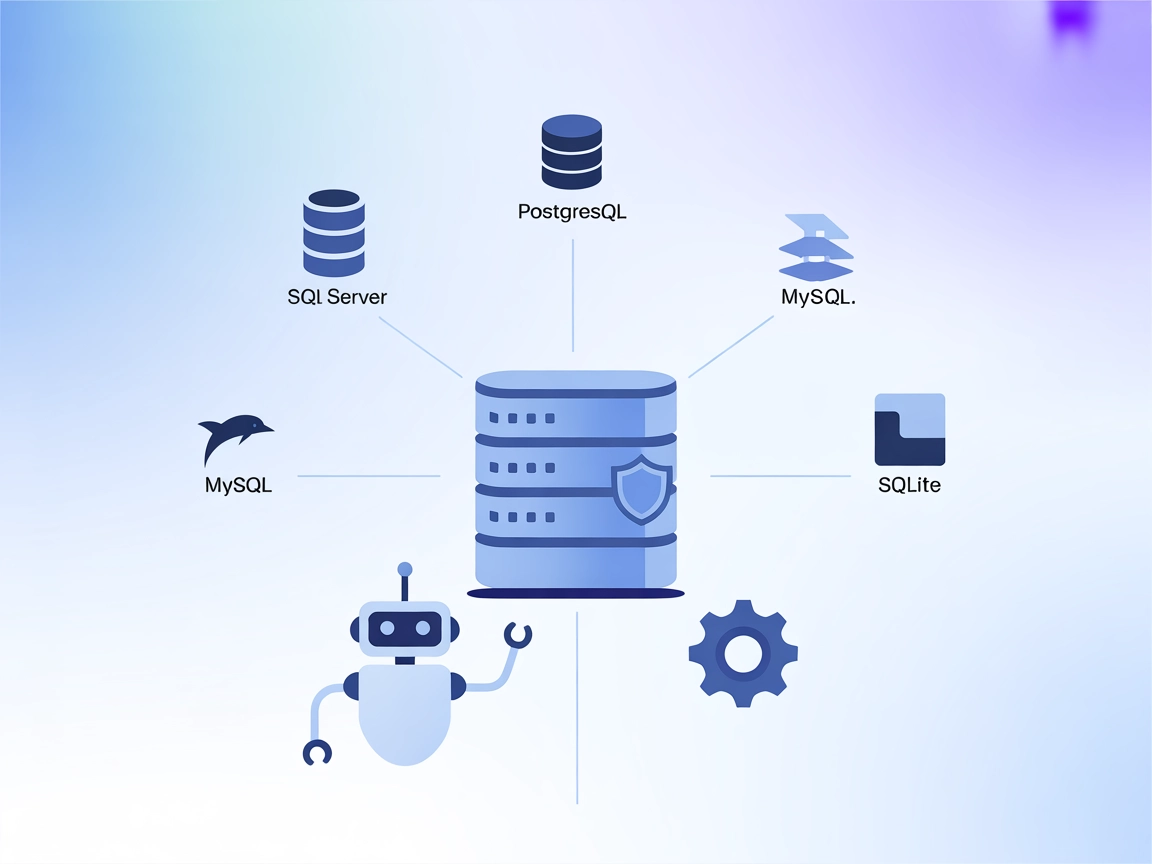
Model Context Protocol (MCP) Server
The Model Context Protocol (MCP) Server bridges AI assistants with external data sources, APIs, and services, enabling streamlined integration of complex workfl...

Connect your AI workflows with real-world billing data and subscription automation using the Chargebee MCP Server for FlowHunt.
FlowHunt provides an additional security layer between your internal systems and AI tools, giving you granular control over which tools are accessible from your MCP servers. MCP servers hosted in our infrastructure can be seamlessly integrated with FlowHunt's chatbot as well as popular AI platforms like ChatGPT, Claude, and various AI editors.
The Chargebee MCP (Model Context Protocol) Server is designed to connect AI assistants with external data sources, APIs, and services, streamlining the process of integrating real-world business workflows into AI-powered development environments. By acting as a bridge between AI clients and systems like databases, file storage, and SaaS tools, the Chargebee MCP Server enables tasks such as querying billing data, retrieving customer information, or automating subscription management. This integration empowers developers and business users to enhance productivity, automate routine operations, and deliver context-aware solutions directly within their development or operational workflows.
No prompt templates found in the provided repository files.
No explicit MCP resources were documented in the available repository files.
No tools found in server.py or the available code files under the provided URL.
No use cases were described in the repository or its documentation.
windsurf.config.json).mcpServers object as shown in the configuration example below.{
"mcpServers": {
"chargebee-mcp": {
"command": "npx",
"args": ["@chargebee/mcp-server@latest"]
}
}
}
Note: Secure your API keys using environment variables.
Example:
{
"mcpServers": {
"chargebee-mcp": {
"command": "npx",
"args": ["@chargebee/mcp-server@latest"],
"env": {
"CHARGEBEE_API_KEY": "${CHARGEBEE_API_KEY}"
},
"inputs": {
"api_key": "${CHARGEBEE_API_KEY}"
}
}
}
}
{
"mcpServers": {
"chargebee-mcp": {
"command": "npx",
"args": ["@chargebee/mcp-server@latest"]
}
}
}
{
"mcpServers": {
"chargebee-mcp": {
"command": "npx",
"args": ["@chargebee/mcp-server@latest"]
}
}
}
{
"mcpServers": {
"chargebee-mcp": {
"command": "npx",
"args": ["@chargebee/mcp-server@latest"]
}
}
}
Note: Secure API keys using environment variables as shown in the Windsurf section above.
Using MCP in FlowHunt
To integrate MCP servers into your FlowHunt workflow, start by adding the MCP component to your flow and connecting it to your AI agent:

Click on the MCP component to open the configuration panel. In the system MCP configuration section, insert your MCP server details using this JSON format:
{
"chargebee-mcp": {
"transport": "streamable_http",
"url": "https://yourmcpserver.example/pathtothemcp/url"
}
}
Once configured, the AI agent is now able to use this MCP as a tool with access to all its functions and capabilities. Remember to change “chargebee-mcp” to whatever the actual name of your MCP server is and replace the URL with your own MCP server URL.
| Section | Availability | Details/Notes |
|---|---|---|
| Overview | ✅ | |
| List of Prompts | ⛔ | |
| List of Resources | ⛔ | |
| List of Tools | ⛔ | |
| Securing API Keys | ✅ | |
| Sampling Support (less important in evaluation) | ⛔ |
I would rate this MCP server documentation and implementation a 2/10, as the repository provides almost no information about prompts, resources, tools, or use cases. Only generic configuration and integration instructions can be inferred.
| Has a LICENSE | ⛔ |
|---|---|
| Has at least one tool | ⛔ |
| Number of Forks | 0 |
| Number of Stars | 0 |
The Chargebee MCP Server acts as a bridge between FlowHunt AI agents and external business systems like billing platforms, making it easy to automate subscription management, retrieve customer information, and streamline billing workflows.
Store your Chargebee API keys using environment variables in your MCP server configuration. This ensures sensitive information is never exposed in code or logs.
You can automate billing queries, subscription management, customer data retrieval, and integrate real-world business logic into your AI-powered workflows.
You need Node.js installed and access to your configuration files for your chosen client (Windsurf, Claude, Cursor, or Cline).
No prompt templates or dedicated tools are currently included in the Chargebee MCP Server documentation. The integration focuses on connectivity and automation with external services.
Supercharge your development and operational workflows by connecting FlowHunt to Chargebee. Automate billing, subscription management, and customer data retrieval directly from your AI flows.

The Model Context Protocol (MCP) Server bridges AI assistants with external data sources, APIs, and services, enabling streamlined integration of complex workfl...

The ModelContextProtocol (MCP) Server acts as a bridge between AI agents and external data sources, APIs, and services, enabling FlowHunt users to build context...

The MCP Database Server enables secure, programmatic access to popular databases like SQLite, SQL Server, PostgreSQL, and MySQL for AI assistants and automation...
Cookie Consent
We use cookies to enhance your browsing experience and analyze our traffic. See our privacy policy.